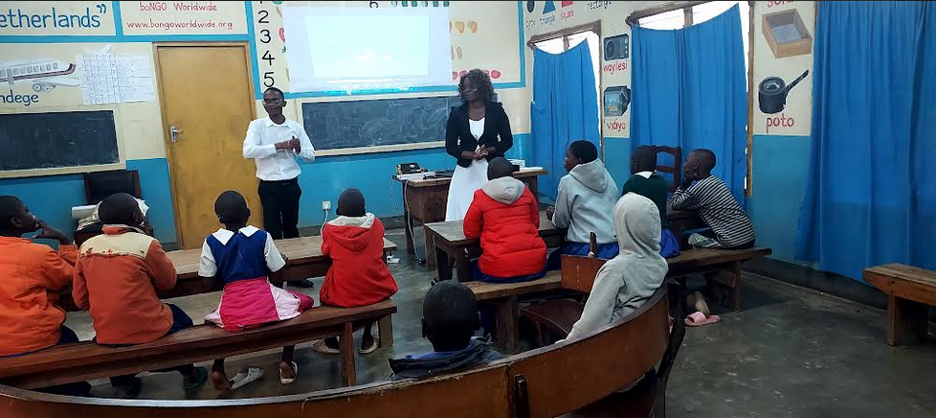
A five-day workshop held in Blantyre has brought together deaf teacher assistants, technical experts, and representatives from the Malawi National Association of the Deaf (MANAD) to localize and pilot the Research Sign Language Assessment (RSLA) tool, a tool designed to assess receptive skills as part of early sign language acquisition for deaf children in lower primary.
This workshop, held in June, was part of the broader “Scaling Inclusive Early Learning with Deaf Children” initiative, a 33-month project being implemented in Malawi, Kenya, and Rwanda by eKitabu, OpenDevEd, Royal Dutch Kentalis, and Busara, with support from the Global Partnership for Education (KIX) and the International Development Research Centre (IDRC) of Canada. The project’s goal is to improve foundational linguistic, cognitive, and socio-emotional outcomes for deaf children through the creation of sign language–rich learning environments.
Turning policy into practice
Malawi’s deaf learners face systemic challenges, including limited early exposure to Malawian Sign Language (MSL), a shortage of fluent educators, and a lack of inclusive policy in Early Childhood Care and Education (ECCE). While a national MSL dictionary was launched in 2022, its classroom integration remains limited. This workshop sought to bridge those gaps through assessment.
Key goals of the workshop included:
- Localizing the RSLA tool to reflect Malawi’s educational and linguistic context;
- Building capacity among deaf teacher assistants on the use and administration of the tool;
- Piloting the tools at Mountain View School for the Deaf; and
- Gathering insights to inform upcoming baseline assessments in September 2025.
Hands-on learning and testing
The workshop was hands-on and deeply collaborative. Participants reviewed the RSLA modules, practiced administering the tests, and provided valuable feedback to ensure the tools were appropriate for Malawi’s classrooms.
On Day 4, the team conducted a live pilot at Mountain View School for the Deaf, assessing learners from Grades 1 to 4. This allowed the deaf teachers to test the tool’s usability, pacing, and learner engagement in a real classroom setting.
Key feedback led to adjustments such as:
- Refining the pace of video delivery
- Recommending strategies for group vs. one-on-one assessments
- Addressing gaps in digital literacy among assessors
Towards a more inclusive future
From scheduling school assessments three weeks after reopening to ensuring high enrollment and supporting teacher assistants with refresher training and digital skills, the team laid out a roadmap for success.
Most importantly, it cemented the importance of deaf-led instruction, community engagement, and evidence-based tools in ensuring that no deaf child is left behind.
As the project moves into the baseline phase later this year, Malawi’s commitment to inclusive early learning stands as a model for the region, demonstrating how localized, inclusive tools can drive equity from the earliest stages of education.